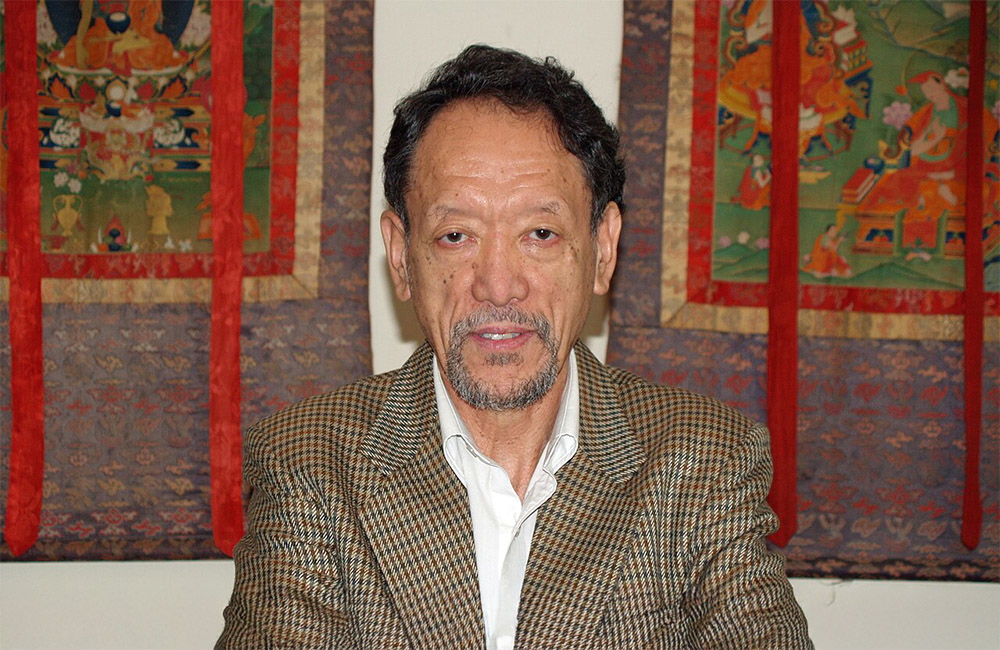Dalai Lama's Key Envoy & Top Negotiator with China Dies: The Legacy of Tashi Wangdi

Kasur Tashi Wangdi, a highly respected Tibetan diplomat and a long-serving former minister (Kalon) of the Central Tibetan Administration (CTA) – Tibet's government-in-exile – has passed away in Canada at the age of 78. His death on 1st May marks the end of an era for the Tibetan community, concluding a remarkable career dedicated to the Tibetan cause that spanned over half a century, much of it serving directly under His Holiness the 14th Dalai Lama.
Born in Sangag Choeling, Tibet, on 15th April 1947, Mr Wangdi’s formative years were irrevocably shaped by the political turmoil engulfing his homeland. Following the tumultuous events of the 1959 Tibetan Uprising against Communist Chinese rule, he, along with his family, joined the mass exodus of Tibetans fleeing into exile in India. Recognised early for his potential, he was among the initial group of Tibetan refugee children chosen for education at a new school established in Mussoorie under the direct patronage of the Dalai Lama.
His academic path led him from the Himalayan foothills to the United Kingdom. After studying at Wynberg Allen School in Mussoorie on scholarship, he was awarded a British Council scholarship in 1968, facilitated by the refugee support organisation Ockenden Venture, enabling him to pursue higher education in Britain. He successfully earned a Bachelor of Arts (Honours) degree in Politics and Sociology from Durham University in 1973 – a significant accomplishment for a member of the Tibetan exile community at that time.
Upon returning to India in 1974, Mr Wangdi embarked upon what would become a lifetime of service to the Central Tibetan Administration. His initial postings included roles within the Departments of Home and Education. His diplomatic acumen was soon recognised, leading to his appointment as Acting Secretary of the Bureau of His Holiness the Dalai Lama in New Delhi in 1976. He would later serve multiple terms as the Dalai Lama’s official Representative to the Government of India, commencing in 1979.
A pivotal moment in his career arrived in 1983 when the Dalai Lama appointed him to the Kashag, the CTA's cabinet. Over the subsequent two decades, Mr Wangdi demonstrated remarkable versatility and administrative capability, heading nearly all major departments at various times, including critical portfolios such as Information and International Relations, Security, Home, Education, Religion and Culture, and Health. His tenure saw him deeply involved in shaping the policies and direction of the government-in-exile.
Perhaps one of his most defining roles came in 1988 when he was appointed head of the Tibetan negotiating team tasked with engaging the Government of the People’s Republic of China. This followed the Dalai Lama's proposal of the "Middle Way Approach," a policy advocating for genuine autonomy for Tibet within the constitutional framework of China, rather than full independence. Mr Wangdi became a principal and articulate proponent of this non-violent, dialogue-based strategy on the international stage.
Adhering to term limits stipulated in the Tibetan Charter, he stepped down from his ministerial position in 2002. However, his diplomatic work continued unabated. He served again as the Dalai Lama’s Representative in New Delhi, before taking up key postings as Representative to the Americas based in New York (2005–2008), and subsequently as Representative to Western Europe, the Maghreb, and the European Union institutions, based in Brussels (from 2009). His commitment to the evolving democratic process within the exile community was evident when he resigned from his Brussels post in 2011 to stand for election as Kalon Tripa (now Sikyong), the democratically elected head of the CTA.
Throughout his long career, Tashi Wangdi was regarded as possessing a rare blend of diplomatic finesse, deep policy understanding, administrative competence, and unwavering loyalty to the Dalai Lama and the vision of a democratic Tibetan polity. Colleagues and observers widely respected his sharp intellect, calm demeanour, and principled approach to leadership.
His experiences are chronicled in his memoir, My Life: Born in Free Tibet, Served in Exile, published by the Library of Tibetan Works and Archives. The book offers a valuable insider’s account of Tibet's challenging post-1959 history, documenting the struggles and achievements of the exile administration and the personal sacrifices of a generation dedicated to preserving Tibetan identity, culture, and political aspirations.
Kasur Tashi Wangdi's passing is a significant loss for the Tibetan community worldwide. He is survived by his family, but his legacy endures in the institutions he helped shape and the diplomatic pathways he forged. His life serves as a powerful testament to the resilience of the Tibetan people and the profound impact of dedicated service performed with integrity and commitment.




![From Kathmandu to the World: How Excel Students Are Winning Big [Admission Open]](https://nepalaaja.com/img/70194/medium/excel-college-info-eng-nep-2342.jpg)
